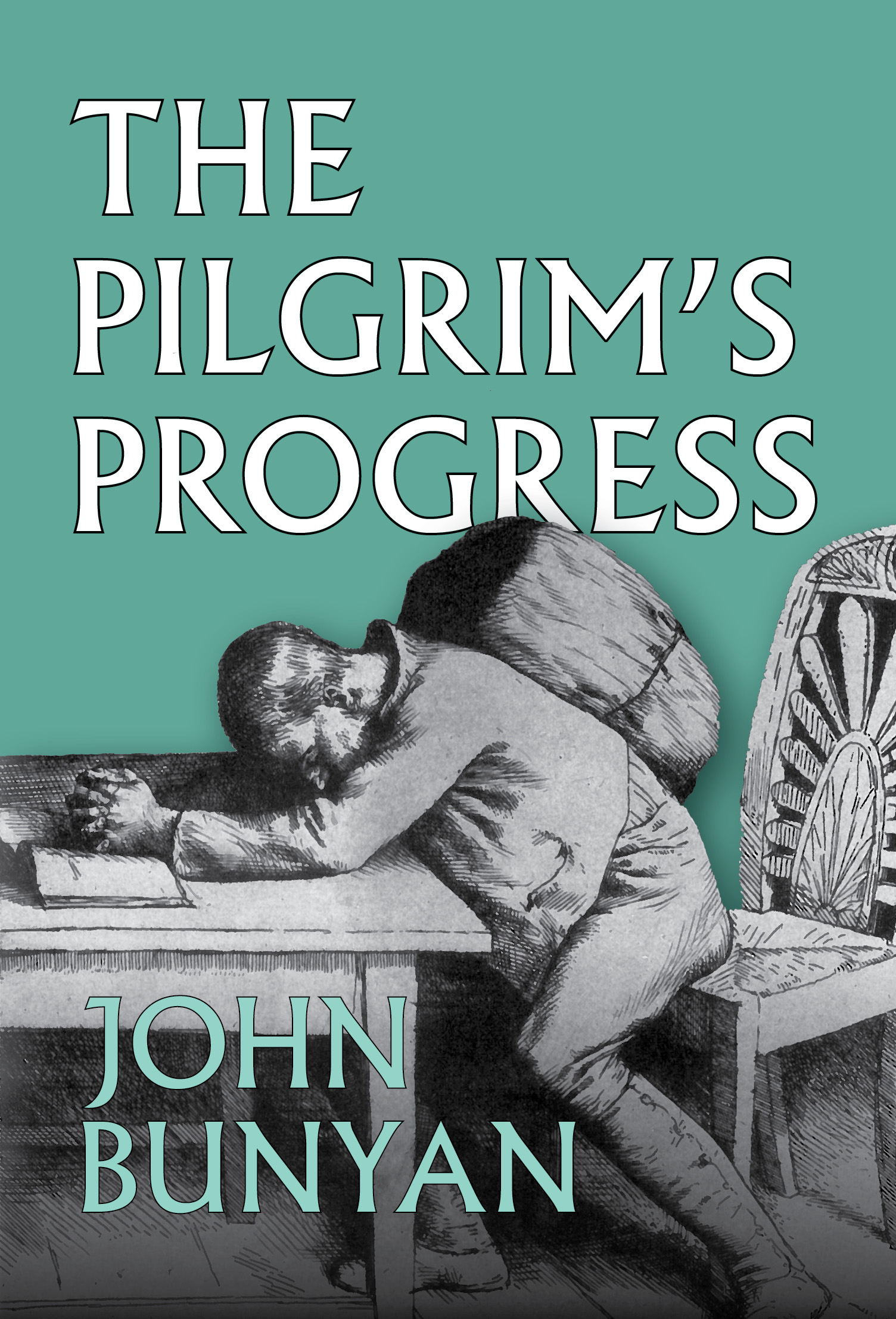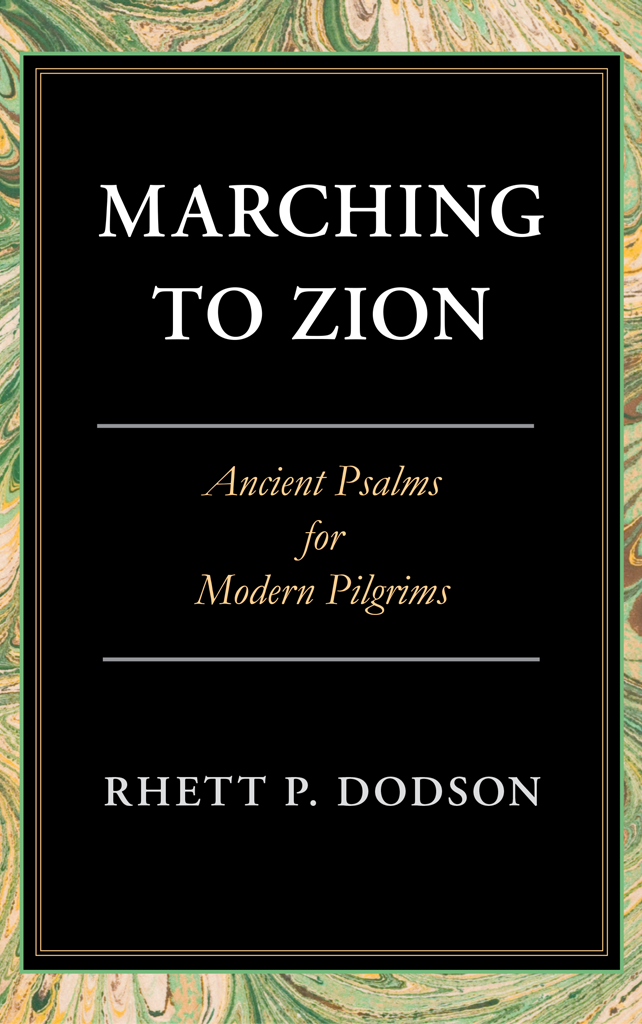Are We There Yet?
We Christians are heaven-bound pilgrims. The question is, do we see ourselves that way? Have we fostered this kind of pilgrim mentality in our own lives?
If not, impatience may be the culprit. In this respect, many of us have been shaped by our culture more than we care to admit. To put it mildly, our culture is not long on patience. Today conversations are short, commercials are short, meals are short, marriages are short. In short, our collective patience has run short. Even sentences can be cut sh
But the Christian life is long. Yes it looks short next to eternity, but the Christian life is still long in the sense that it is, literally, ‘lifelong’, which makes it longer than many other things. It outlasts many careers and relationships and governments and institutions and sports dynasties. Thus understanding the Christian life as a pilgrimage requires us to think and live in terms of a long, arduous journey.
Jonathan Edwards preached a sermon on the Hebrews 11 passage we just looked at. The sermon was entitled ‘The Christian Pilgrim, or The True Christian’s Life a Journey Towards Heaven’. Edwards said this:
Long journeys are attended with toil and fatigue, especially if through a wilderness. Persons in such a case expect no other than to suffer hardships and weariness.—So we should travel in this way of holiness, improving our time and strength, to surmount the difficulties and obstacles that are in the way. The land we have to travel through, is a wilderness; there are many mountains, rocks, and rough places that we must go over, and therefore there is a necessity that we should lay out our strength.
This is no easy journey. This pilgrimage takes patience. And it is precisely there that we struggle so much.
Children are notorious for pestering their parents from the back seat of the car during long drives. ‘Are we there yet? (No.) Are we there yet? (No!) Are we there yet? (NO!)’ For the parents this makes the long drive seem even longer. (Of course, when the grandparents hear about this they recognize it for what it is: payback. Years ago, those who are now the tormented were the tormentors. The torch has been passed to a new generation.) The parent who has been asked several times ‘Are we there yet?’ may reply (calmly, or not so calmly), ‘If we were there, we wouldn’t still be driving sixty-five miles per hour on the interstate, now would we?’ But that reply only has the effect of changing the question to ‘Are we almost there? Are we almost there? Are we almost there?’
We sinners are an impatient lot.
Sometimes when Christians recite Scripture passages from memory, they succumb to the temptation to recite so quickly they appear to be racing someone else who got a head start. (‘I know these words. Let me hurry up and get through them just to prove it.’) This is especially ironic when the passage in question is Paul’s description of the fruit of the Spirit in Galatians 5. Hurry up and get through it: ‘ButthefruitoftheSpiritislovejoypeacepatiencekindnessgoodnessfaithfulnessgentlenessselfcontrol.’ ‘Wait, go back. Did you say “patience” in there somewhere? Was that in the list?’
One evening after dinner, as my wife and I were cleaning up in the kitchen, one of our children made his way in from the living room and revealed to us that something was troubling him. ‘Daddy’, he said, ‘I don’t think we’re ever going to get to heaven.’ Naturally, my attention quickly turned from drying dishes and wiping counter-tops to the weighty spiritual concerns of my little one. I gently probed, ‘Why do you say that?’ He answered, ‘Because it’s taking so long to get to heaven.’ Priceless!
On the one hand, it was thrilling for me as his father to see that heaven seemed so real to him. I have seen that at other times too, like the time when our children were interrogating their well-travelled babysitter about all the places in the world she had visited, until finally that same son asked with wonder, ‘Have you been to heaven?’ He knows heaven is real, and he knows it to be the destiny of God’s children, even if he did not quite understand at the time all the ins and outs of going there and staying there.
On the other hand, his words in the kitchen that evening struck me as a poignant expression of the impatience that some Christians do feel about going to heaven. We may find it hard to give ourselves wholeheartedly to a difficult journey that may take many years. So instead we settle for an impoverished, ‘waiting around’ sort of spirituality, and our Christian lives become practically aimless. Instead of pilgrims, we see ourselves as sitters—sitting on a bench, waiting for the bus, and content to nod off until it arrives. Diagnosis: spiritual stagnation.
What is the solution to this plight? How can a pilgrim mentality be nurtured? The solution, in part, lies in grasping the fact that heaven will be worth the wait—or, more fully, worth the wait-march. (There’s that helpful hyphen again.) Yes, it will take your whole life to get to heaven, and yes, your life may last longer than most, and yes, the Christian life will be a challenging journey from start to finish. But it’s worth it.
Not only will heaven itself vastly outweigh the difficulties you knew in getting there, but the life you lived here will have been richer for the sense of pilgrimage you brought to it. You tell me, which is the more satisfying way to spend a day: sitting relatively motionless on a bench, or successfully hiking a challenging climb? Which is the more satisfying way to conceive of your Christian life?
Like all parents, my wife and I have had to teach our children about patience. When they were younger, if they insisted on being served some dish at the dinner table right away, we would sometimes say to them (with deliberate pauses between each syllable), ‘You . . . need . . . to . . . be . . . pa- . . . (extra long pause here) . . . tient.’ We intended to illustrate by the tempo of our words the very patience to which we were calling them.
Does not our heavenly Father train us in a similar way? Think about the tempo of his words. That is, think about the Bible. Think about how the saving purposes of God are gradually, patiently articulated and accomplished from Genesis to Revelation, from protology to eschatology, from Adam to Christ. The Bible is our Father’s illustrative way of saying to his children, ‘You . . . need . . . to . . . be . . . pa- . . . tient.’ Peter reminds us that God himself is patient—‘with the Lord one day is as a thousand years, and a thousand years as one day’ (2 Pet. 3:8)—and he urges us to be patient too.
The good news is, we can be! Patience is named among the fruit of the Spirit. Read Galatians 5:22 (read . . . it . . . slow- . . . ly) and you will see it there. Our Father not only calls us to be patient, but also gives us that gift by the transforming power of his Spirit. ‘If we hope for what we do not see, we wait for it with patience’ (Rom. 8:25). We have the Spirit to thank for that. If you find yourself to be a generally impatient person, and thus reluctant to embrace the identity ‘Pilgrim’, then return to these truths, and return humbly in prayer to the Spirit whose grace you need. Ask him to help you. Ask him to stir you, so that you rise up from your sitting down and fall in with the hopeful, determined company you see marching by and singing as they go. Christian, your destiny is heaven. Your home is heaven. So get up and go there.
Your heavenly life now
Thankfully, we pilgrims do not have to wait until we reach heaven to know something of its glories. As we saw in Chapter 11, the church’s assemblies for worship afford us foretastes of heavenly experience. And then, even when the worship service ends and we go our separate ways, we continue to enjoy in-breakings of heavenly life now—yes, even in the midst of our sins and sorrows. After all, heaven is a world of love (the theme of another Edwards sermon), as well as a world of joy and peace and holiness and fellowship, and the heaven-bound pilgrim has already begun to experience those realities. Both in his religious exercises and in his earthly callings, insofar as he knows and serves the Lord, he has begun to live his future life. The Christian life on earth is life lived in the Holy Spirit (Rom. 8:9), and what is heaven but the most Spirit-filled world? Thus our pilgrimage is infused with a sense of the reality of our destination. The way to heaven is by practising heaven. As Edwards put it, ‘The way to heaven is a heavenly life; an imitation of those who are in heaven, in their holy enjoyments, loving, adoring, serving, and praising God and the Lamb.’2
In the hymn ‘Come, We that Love the Lord’, Isaac Watts put it this way:
The men of grace have found
Glory begun below;
Celestial fruits on earthly ground
From faith and hope may grow.
The hill of Zion yields
A thousand sacred sweets,
Before we reach the heavenly fields
Or walk the golden streets.
Then let our songs abound,
And ev’ry tear be dry;
We’re marching through Immanuel’s ground
To fairer worlds on high.
In John Bunyan’s Pilgrim’s Progress, Emmanuel’s Land was the territory ‘within sight of the city’, that is, near to the Celestial City, which was the ultimate destination.3 Watts is saying, that is where we find ourselves now: in sight of the end, not yet having reached it, but marching on until we do. In the meantime we experience foretastes. ‘Glory begun below’. Glory before we get there. No, we never sang ‘Come, We that Love the Lord’ in Glee Club. But Watts’ words touch a nerve too, just like the poetry of those two spirituals I mentioned before. Here is a pilgrim song, indeed.
To top it off, this hymn is a pilgrim song that encourages even more singing: ‘Then let our songs abound’, wrote Watts. Yes, he was right. Let them abound. Think of all the armies throughout history that have sung as they marched. Was there ever a marching people with more cause to sing than the people of Jesus Christ? This world is not our home, but another world is, and we are on our way. No one who spends his life earnestly going there will ever look back and regret it. No one who sings as a pilgrim will ever find that he wasted his breath.
What about you? Think back on recent days and months and years. Have you been sitting, or marching? Better yet, have you been sing-marching? Even as a Christian you may have settled for a relatively sedentary spirituality, but this will not do. Remember, Paul says, ‘Set your mind on things that are above’ (Col. 3:2), and nothing promotes that kind of heavenly-mindedness quite like a deep-seated sense that your whole life is a journey being lived in that direction. So let us live, confident that one day we shall be wayfaring strangers no more. We’re only going over Jordan. We’re going home to live with God.
Notes
- Jonathan Edwards, ‘The Christian Pilgrim, or The True Christian’s Life a
Journey Towards Heaven’, Works, Volume 2 (London; Banner of Truth Trust), pp. 243-4. - Edwards, ‘Christian Pilgrim’, Works 2, p. 243.
- John Bunyan, The Pilgrim’s Progress (Edinburgh: Banner of Truth, 1977), p. 136.
Further Helps for Pilgrims

Description
We Christians are heaven-bound pilgrims. The question is, do we see ourselves that way? Have we fostered this kind of pilgrim mentality in our own lives? If not, impatience may be the culprit. In this respect, many of us have been shaped by our culture more than we care to admit. To put it mildly, […]

Marching to Zion
Ancient Psalms for Modern Pilgrims
Description
We Christians are heaven-bound pilgrims. The question is, do we see ourselves that way? Have we fostered this kind of pilgrim mentality in our own lives? If not, impatience may be the culprit. In this respect, many of us have been shaped by our culture more than we care to admit. To put it mildly, […]

Description
We Christians are heaven-bound pilgrims. The question is, do we see ourselves that way? Have we fostered this kind of pilgrim mentality in our own lives? If not, impatience may be the culprit. In this respect, many of us have been shaped by our culture more than we care to admit. To put it mildly, […]
Latest Articles
Finished!: A Message for Easter 28 March 2024
Think about someone being selected and sent to do an especially difficult job. Some major crisis has arisen, or some massive problem needs to be tackled, and it requires the knowledge, the experience, the skill-set, the leadership that they so remarkably possess. It was like that with Jesus. Entrusted to him by God the Father […]
Every Christian a Publisher! 27 February 2024
The following article appeared in Issue 291 of the Banner Magazine, dated December 1987. ‘The Lord gave the word; great was the company of those that published it’ (Psalm 68.11) THE NEED FOR TRUTH I would like to speak to you today about the importance of the use of literature in the church, for evangelism, […]
